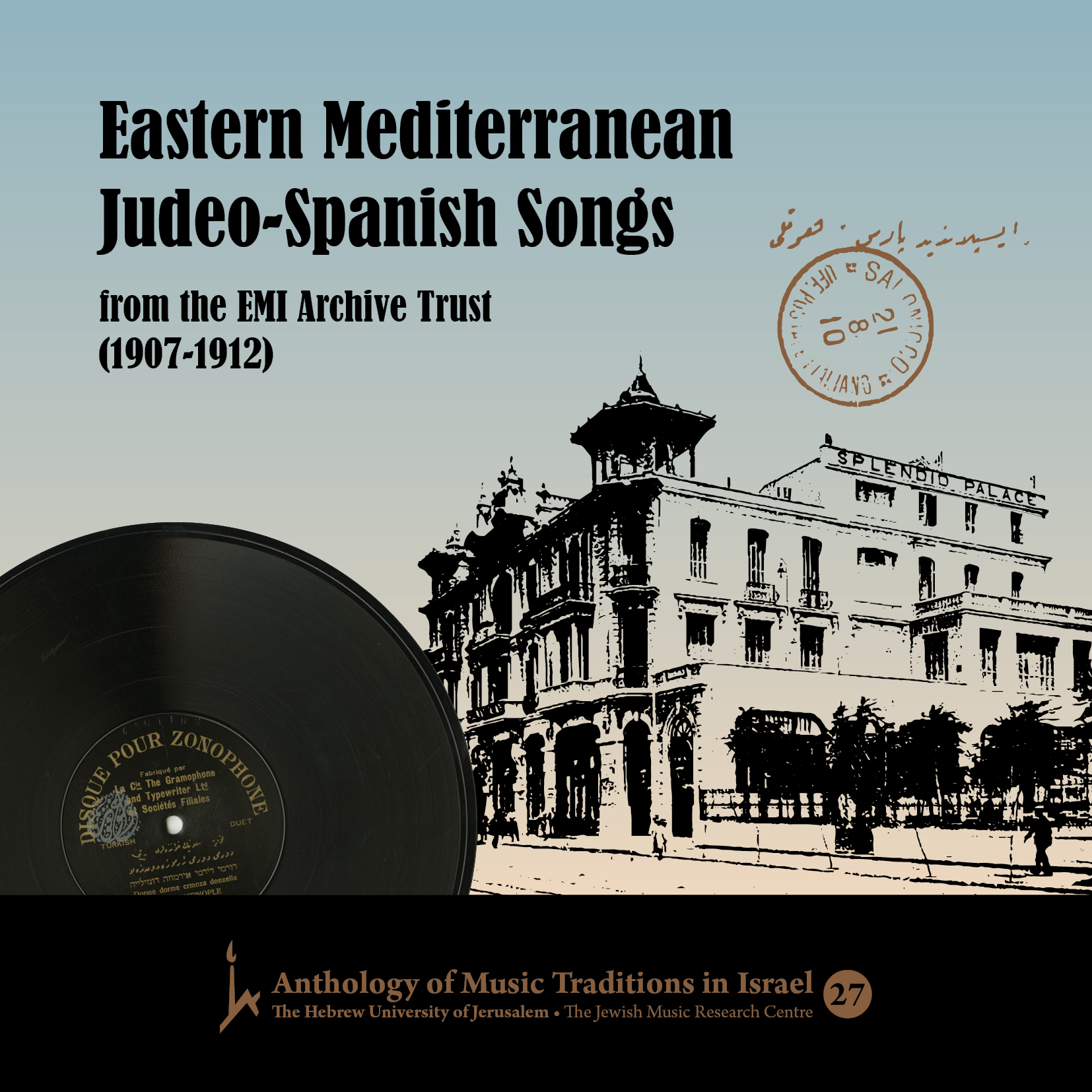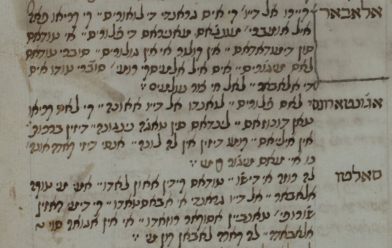La Gloria
71. El juramento del mancebo + El escolero y las viñas + El novio desprendido (La Gloria)
A unique string of fragments from three wedding songs, perhaps hinting to a performance practice of La Gloria linking several songs together. Some lines of these songs are of great antiquity. While the first two songs. El juramento del mancebo (stanza 1; CMP AA88; see also Attias 1961, no. 94 for a rare version from Greece) and El escolero y las viñas (stanza 2; CMP AA58) are documented almost exclusively in Sarajevo, the third one, El novio desprendido (stanzas 3 and 4) appears in other Sephardic traditions such as Rhodes, Bulgaria and Salonica (often combined with other stanzas). The first two songs appear as melodic indications to piyyutim. El juramento del mancebo served as a model song for Najara’s piyyut “Yalin na ben shaday / dod eshkol kofer” (Źemirot Yisrael, Venice 1599/1600, f. 76b, Incipitario, no. 352). El escolero y las viñas was evidently very popular in Sarajevo, since its melody was adapted for a piyyut by Najara (“Yakhbir milin libi,” see Incipitario nos. 155, 262, 552). Díaz Mas (1994, no. 4) published a version of El escolero y las viñas from the collection of Rabbi Moses Levy copied by Manrique de Lara in Sarajevo in 1911 (CMP AA58.2). For additional versions of El juramento del mancebo and El escolero y las viñas see Eliezer S. Abinun (Archiv Produktion, SAPM 198 460, from 1968); NSA Y 02994/10 11,12 (Eliezer S. Abinun, Sarajevo, 1967); NSA Y 09482(1) (Attias’ version). For additional versions of El novio desprendido see Hemsi 1995, no. 123.
Madre, un mancebico
mi madre, va vestido.
Juramiento tiene de ser el mi amigo
que ansí que mucho m’agrado a mí
mucho m’agrado, mi madre,
esti novio que tomí
que Dio me lo deje vivir.En casa de tu padre,
amada y estimada,
criada en el pan blanco
y el agua rosada.
Escolero bien vengateš.
Venid en buen simán.El novio non quere ducados.
Quere a la novia con el mazal alto.
Que vengan a ver,
que gocen y logren y tengan mucho bien.El novio non quere dineros.
Quere a la novia con el mazal bueno.






